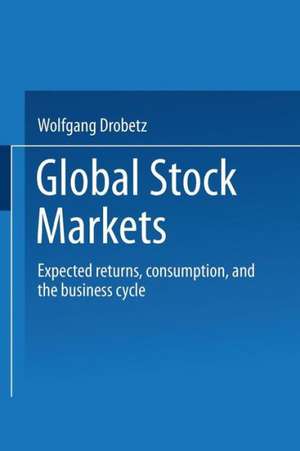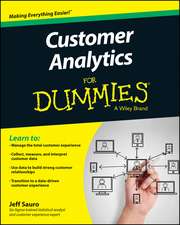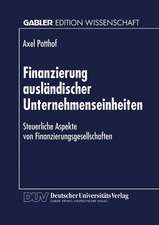Global Stock Markets: Expected returns, consumption, and the business cycle
Autor Wolfgang Drobetzen Limba Engleză Paperback – 30 oct 2000
Preț: 390.63 lei
Nou
Puncte Express: 586
Preț estimativ în valută:
74.76€ • 81.17$ • 62.79£
74.76€ • 81.17$ • 62.79£
Carte tipărită la comandă
Livrare economică 22 aprilie-06 mai
Preluare comenzi: 021 569.72.76
Specificații
ISBN-13: 9783824472727
ISBN-10: 3824472724
Pagini: 356
Ilustrații: XIX, 332 p.
Dimensiuni: 152 x 229 x 19 mm
Greutate: 0.48 kg
Ediția:2000
Editura: Deutscher Universitätsverlag
Colecția Deutscher Universitätsverlag
Locul publicării:Wiesbaden, Germany
ISBN-10: 3824472724
Pagini: 356
Ilustrații: XIX, 332 p.
Dimensiuni: 152 x 229 x 19 mm
Greutate: 0.48 kg
Ediția:2000
Editura: Deutscher Universitätsverlag
Colecția Deutscher Universitätsverlag
Locul publicării:Wiesbaden, Germany
Public țintă
GraduateCuprins
1 Introduction.- 2 Theory of asset pricing.- 3 Theory of international asset pricing.- 4 Time varying expected returns and the business cycle on international financial markets.- 5 Testing a conditional version of the consumption-based asset pricing model.- 6 Volatility bounds for stochastic discount factors on global financial markets.- 7 Mean reversion and rational pricing on global stock markets.- 8 On the contributions of this study.
Notă biografică
Dr. Wolfgang Drobetz ist Assistent am Schweizerischen Institut für Banken und Finanzen der Universität St. Gallen, wo er bei Prof. Dr. Heinz Zimmermann promovierte.
Textul de pe ultima copertă
Stock investments have become increasingly international, but only recently a deeper theoretical understanding of the forces influencing global stock market returns has been gained from empirical studies. This is a crucial issue for asset managers in order to control the risks and exposures of global stock portfolios successfully.
Wolfgang Drobetz provides empirical evidence on the time variation of expected stock returns over the stages of the business cycle: If the time variation in expected returns is rational, driven by shocks to taste or technology, the variation in expected returns should be related to variation in consumption, investment, and savings. Testing both stochastic discount factor models and beta pricing models, the author finds that predictability of stock returns is perfectly consistent with the concept of market efficiency, and stock prices need not follow a random walk.
Wolfgang Drobetz provides empirical evidence on the time variation of expected stock returns over the stages of the business cycle: If the time variation in expected returns is rational, driven by shocks to taste or technology, the variation in expected returns should be related to variation in consumption, investment, and savings. Testing both stochastic discount factor models and beta pricing models, the author finds that predictability of stock returns is perfectly consistent with the concept of market efficiency, and stock prices need not follow a random walk.















